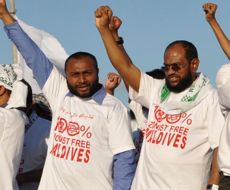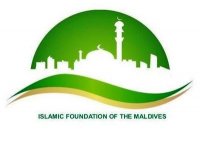Tourism arrivals to the Maldives during the first quarter of 2013 were up 14.6 percent over the same period last year, as declining Western European demand failed to offset growing interest in the destination from Asia and Eastern Europe.
According to official statistics, 293,112 tourists arrived in the country between January to March 2013. During March alone, 99,498 visitors were recorded in total – an increase of 30.1 percent on a year-on-year basis.
Over the last month, the tourism industry has faced several potential boycotts as a result of negative headlines, such as the controversial flogging sentence handed to a 15 year-old rape victim who admitted to having consensual sex with an unnamed man during a police investigation.
So far over two million people have signed an online petition backing a selective tourism boycott by Avaaz.org. The petition aims to launch a media campaign targeting local resort businesses to pressure key decision makers to push for legal reforms in how sexual offences are dealt with.
Similar boycott action has been threatened in China, where concerns over alleged discrimination of Chinese nationals by one resort operator created negative publicity for the Maldives across local press and social media services.
However, tourism authorities told Minivan News late last month that after a“challenging” 2012 following political upheavals – a much more optimistic outlook was expected for the industry over the next two years. The country is presently well on target to meet a one million visitor target that it failed to reach by the end of 2012.
Regional visitors
During the last three months, China has continued to remain the key driver behind growth in tourism arrivals. Some 70,570 arrivals were recorded for the first quarter of 2013, an increase of 51.2 percent over the same period last year. China accounted for 24.1 percent of all tourist arrivals to the Maldives between January and March, remaining the largest national market in terms of arrivals by over ten percentage points.
Total tourist demand from the Asia Pacific region was up for the quarter by 41.6 percent, amounting to 109,233 visitors, according to the statistics.
Meanwhile, European visitor numbers were up 0.3 percent over the same period last year, as demand from Central and Eastern Europe during the quarter rose by 24.2 percent – amounting to 39,273 people.
Russia remained the key market in the region, amounting for 8.3 percent of all arrivals to the Maldives over the first three months of the year. Visitor numbers from the country between January and March reached 24,255 people – up 21.8 percent over the same time last year.
In Western Europe, tourist demand fell 5.5 percent for the quarter, amounting to 69,747 visitors. This region still represented a 23.8 percent share of total arrivals to the Maldives for the first three months of the year.
During the same quarter, visitors from key markets including Germany and France fell by 2.6 percent and 11.3 percent respectively.
Elsewhere in Europe, arrivals from the United Kingdom and Italy – key traditional markets for the Maldives – were also down. Visitors from the UK for the first three months of the year fell by 7.6 percent to 22,550. Italy posted a 13.7 percent decline for the quarter – amounting to 23,247 guests.
In Africa, 1,588 people visited the Maldives during the quarter, up by 28.9 percent over the same period last year.
Across the Americas, demand rose by 31.8 percent for the first three months of the year, amounting to 8,006 people. Between January and March, 2013, Middle Eastern arrivals increased by 53.4 percent over the same period last year, with 6,665 visitors.
Optimism
Ahead of the release of the March 2013 statistics, Deputy Tourism Minister Mohamed Maleeh Jamal told Minivan News last month that the outlook for the year ahead was much more optimistic than in 2012. He pointed to protests in Male’ during the build up and aftermath of last year’s controversial transfer of power as a key difficulty faced by the industry last year.
With the bulk of protests following the change in government last year having been concentrated in the capital, Maleeh said that “false information” indicating that tourists staying at the country’s isolated island resorts would be affected by protests had since been dispelled.
However, in light of political uncertainty in 2012, the incoming government of President Dr Mohamed Waheed Hassan had sought to utilise public relations groups and advertising to try and offset the perceived impact of negative news headlines following the transfer of power.
This focus has included agreeing a US$250,000 (MVR 3.8million) advertising deal to promote the country’s tourism industry on the BBC through sponsorship of its weather services, as well as signing a £93,000 per month (US$150,000) contract with public relations group Ruder Finn to try and improve the country’s image internationally.
Despite some challenges posed by a reduced state budget for marketing this year, Maleeh said authorities were continuing to press for private funding to help with mainstream ad pushes on services like CNN and the BBC.
“We hope to have an announcement by the middle of the year,” he said.
Maleeh added that between April to August this year, a number of foreign journalists from all over the world would be invited to take part in ‘familiarisation trips’, which were claimed to have proved “very effective” the previous year.
Efforts are also expected to be undertaken in china to provide promotional focuses in mainstream media, such as state broadcasters state broadcasters, to promote the destination with local assistance.

